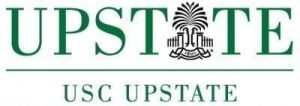Bodies of Knowledge Symposium aims to create a better world for LGBTQ people
April 2, 2018The 10th anniversary of the Bodies of Knowledge Symposium at the University of South Carolina Upstate will take place April 9-11, 2018. This year’s theme is Creating a Better World for LGBTQ People.
The three-day symposium received generous funding from the Freeman Foundation and is sponsored by the Spartanburg County Foundation and the College of Arts and Sciences and Center for Women’s and Gender Studies. It is dedicated to changing the conversation about LGBTQ lives in the Upstate of South Carolina and includes a dynamic array of scholarly and creative presentations, films and a catered luncheon on April 11, 2018.
“The Bodies of Knowledge Symposium is an academic gathering to discuss LGBTQ scholarship, research methods, service-learning projects, literary art, and community organizing that affirms the historically marginalized identities of LGBTQ students, faculty, staff, and community members,” said Dr. Merri Lisa Johnson-Marsala, director of the Center for Women’s and Gender Studies at USC Upstate. “The goals of the Bodies of Knowledge Symposium are to improve the climate of the Upstate for its LGBTQ population, provide leadership opportunities for LGBTQ youth, and promote civil and well-informed discussion about sexuality and nonconforming gender identities in this region.”
The symposium opens Monday, April 9 with a screening of an important documentary film, Holler If You Hear Me: Gay and Black in the Church, which is produced by Clay Cane. The film, which puts the narrative in the hands of Black LGBT people who are struggling with the intersections of sexuality, faith, and race, will be shown from 6 to 8 p.m. in Tukey Theatre.
The opening keynote address entitled Out of the Closet, Into the Archives will be delivered by Jaime Cantrell on Tuesday, April 10. She is faculty affiliate at the Sarah Isom Center for Women’s and Gender Studies, the Center for the Study of Southern Culture and LGBT Program Coordinator at the Center for Inclusion and Cross Cultural Engagement at the University of Mississippi. Cantrell seeks to prepare students to understand that their educational experiences parallel activist efforts outside their learning walls, where people work collectively in meaningful, creative, and unexpected ways to transform lives—and that students are uniquely positioned to move ways of being and belonging from the institutions they attend to the communities those institutions are intended to serve.
E. Patrick Johnson, professor of Performance Studies and African American Studies at Northwestern University, will deliver the closing keynote address on Wednesday, April 11 based on his forthcoming two-volume project entitled, Honeypot: Black Southern Women Who Love Women. Johnson has published widely in the areas of race, class, gender, sexuality, and performance and he is a prolific performer and scholar, and an inspiring teacher, whose research and artistry has greatly impacted African American studies.
“By featuring artists, creative writers, and academic specialists in LGBTQ Studies who translate scholarly discourse into accessible language, the symposium serves to legitimize sexual diversity and gay and lesbian identities as valuable parts of the normal range of human experience, and as productive sites of academic inquiry,” said Johnson-Marsala. “Students who see their lives reflected back to them in the mirrors of these engaging, personable, intelligent, and self-confident LGBTQ speakers will ideally feel valued in a way that their upbringing in this region may not have made possible.”
USC Upstate students, faculty and staff may attend for free. Registration for non-USC Upstate students is $20 and $40 for the general public. To register and for more information, call 864-503-5724 or visit www.uscupstate.edu/bodiesofkno
About USC Upstate
The University of South Carolina Upstate is a regional, comprehensive university that offers more than 40 bachelor’s degree programs in the liberal arts and sciences, business administration, nursing, and teacher education, and master’s degrees in education, informatics, and nursing. These degrees help students to transition easily to careers in the Upstate region. USC Upstate is committed to fulfilling regional and state workforce needs and thus the university is a major engine of social and economic development. Comprised of a diverse and dynamic community of approximately 6,000 students from 26 states and 17 countries, USC Upstate is a wonderful blend of traditional and nontraditional students who reflect the Upstate’s rich international character. USC Upstate offers a balance of strengths that, when added up, results in a learning experience that is hard to match. The academic programs are accredited and highly ranked, with amazing research and internship opportunities for students. USC Upstate has its main campus in Spartanburg, the George Dean Johnson, Jr. College of Business and Economics and the UPSTATE Gallery on Main in downtown Spartanburg, a location in Greenville, and a growing number of programs online. The USC Upstate Spartans, which fields 17 varsity sports, compete on the NCAA Division I level as a member of the Atlantic Sun Conference. Nearly 30,000 alumni have earned degrees from USC Upstate and approximately 85 percent choose to remain in the Upstate region to build their lives and careers, making a significant impact of the region’s economy and quality of life. Learn more at www.uscupstate.edu.





















